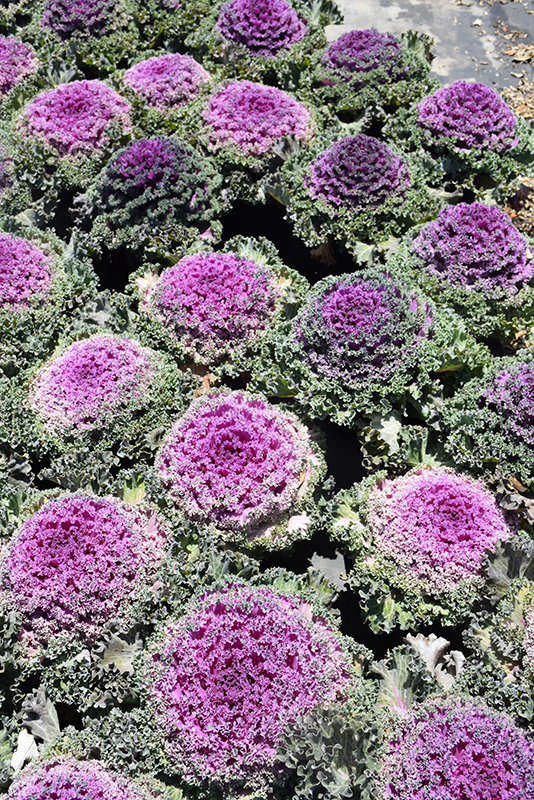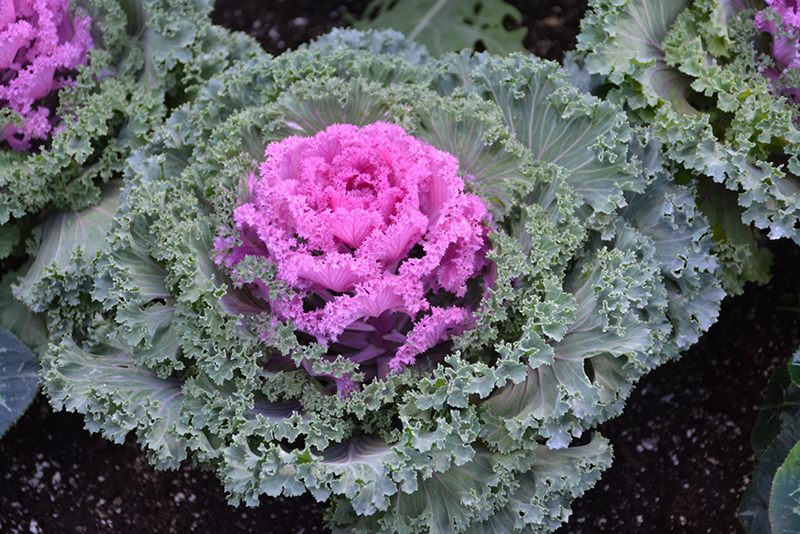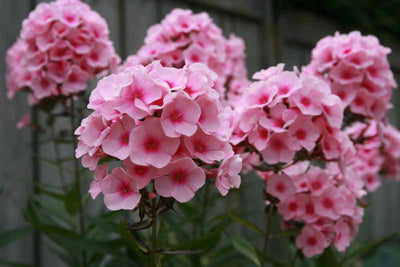Plant Library
Nagoya Red Ornamental Kale
Brassica oleracea var. acephala 'Nagoya Red'
Height: 12 inches
Spacing: 12 inches
Sunlight:
![]()
Hardiness Zone: (annual)
Other Names: Emperor Red
Brand: Ball
Description:
This variety produces dense rosettes of sea green outer foliage with deep red centers; mainly used as ornamental, the leaves can be eaten but are bitter to taste; can be used in soups and stews or made into kale chips; performs well in cooler conditions
Edible Qualities
Nagoya Red Ornamental Kale is an annual vegetable plant that is typically grown for its edible qualities, although it does have ornamental merits as well. The crinkled round bluish-green leaves with showy burgundy variegation can be harvested at any time in the season. The leaves have a bitter taste.
The leaves are most often used in the following ways:
- Fresh Eating
- Eating When Cooked/Prepared
- Cooking
Planting & Growing
Nagoya Red Ornamental Kale will grow to be about 12 inches tall at maturity, with a spread of 14 inches. When planted in rows, individual plants should be spaced approximately 12 inches apart. This fast-growing vegetable plant is an annual, which means that it will grow for one season in your garden and then die after producing a crop.
This plant is quite ornamental as well as edible, and is as much at home in a landscape or flower garden as it is in a designated vegetable garden. It should only be grown in full sunlight. It does best in average to evenly moist conditions, but will not tolerate standing water. It is not particular as to soil pH, but grows best in rich soils. It is somewhat tolerant of urban pollution. Consider applying a thick mulch around the root zone over the growing season to conserve soil moisture. This is a selected variety of a species not originally from North America.
Nagoya Red Ornamental Kale is a good choice for the vegetable garden, but it is also well-suited for use in outdoor pots and containers. It is often used as a 'filler' in the 'spiller-thriller-filler' container combination, providing a canvas of foliage against which the thriller plants stand out. Note that when growing plants in outdoor containers and baskets, they may require more frequent waterings than they would in the yard or garden.






